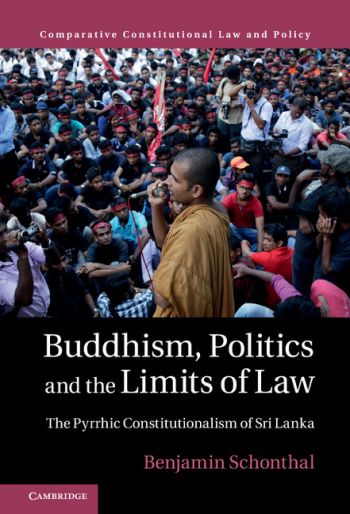
It is widely assumed that a well-designed and well-implemented constitution can help ensure religious harmony in modern states. Yet how correct is this assumption? Drawing on ground-breaking research from Sri Lanka, the book argues persuasively for another possibility: when it comes to religion, relying on constitutional law may not be helpful, but harmful instead; constitutional practice may give way to pyrrhic constitutionalism.
Written in a lucid and direct style, aimed at specialists and non-specialists, Buddhism, Politics and the Limits of Law offers a detailed examination of why constitutional law has damaged, rather than promoted, inter-religious concord in Sri Lanka. Examining the roles of Buddhist monks, civil society groups, political coalitions and more, the book provides the first extended study of the legal regulation of religion in Sri Lanka as well as the first book-length analysis of the intersections of Buddhism and contemporary constitutional law.